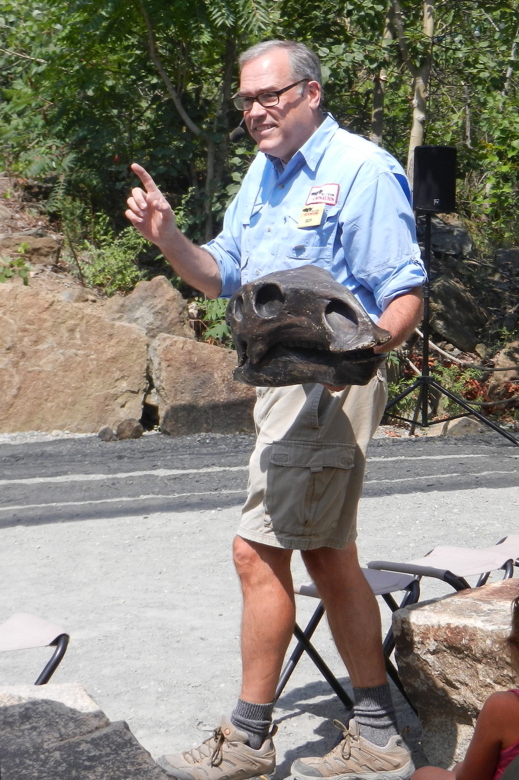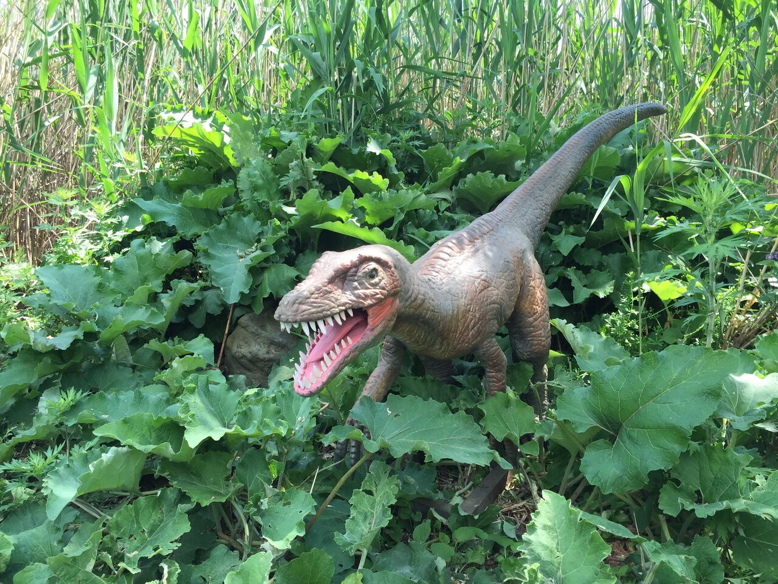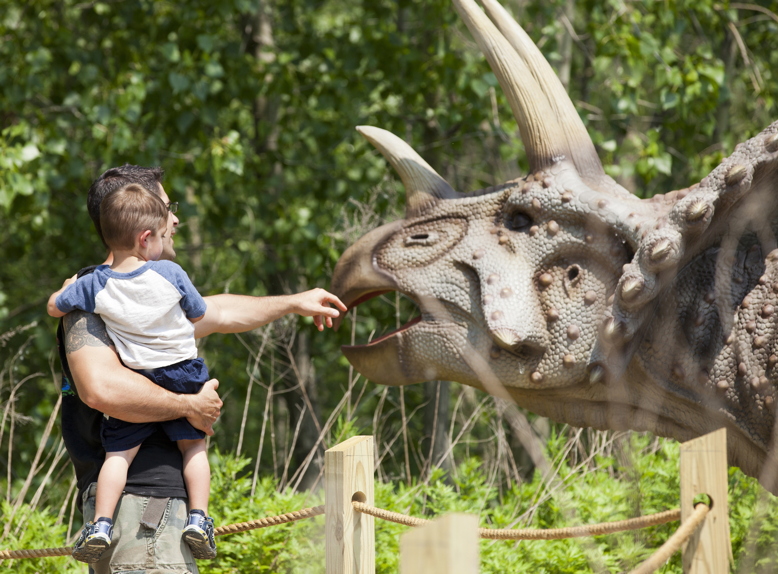Secluded a stone’s throw away from the Secaucus train station atop a volcanic rock formation, once called Snake Hill, a prehistoric world thrives.
Field Station: Dinosaurs, an outdoor theme park fitted with dozens of life-size, animatronic dinosaurs, offers an experience like no other for those brave enough to explore its grounds.
Dinosaur enthusiasts become paleontologists for the day upon entering the field station. Equipped with nothing but a trail map and booklet of credentials, adventurers get to observe dinosaurs in their natural habitat, go on field digs and meet realistic dinosaurs.
Featuring scaly creatures from the Triassic to Cretaceous periods, each field stop at the park offers an unique snapshot into the life of these mysterious creatures—where they lived, what they ate and what scientists believed they looked like.
The 18-acre park is home to relics who dominated the earth for an era spanning 135 million years. The safe haven is meant not only to captivate and entertain, but to educate its guests.
Did you know that today’s birds are believed to be descendants of carnivorous dinosaurs that lived during the Jurassic Period? Or that one of the most widely recognized dinosaurs—the Triceratops (above)—lived mostly along the Rocky Mountain region?
Explorers become dinosaur experts as they peruse the park, observing the dinosaurs in their natural habitat and by attending one of the 40 daily educational performances including the “Morning Briefing,” “Fossils Up Close” and “Found in New Jersey.”
The field team emotes sheer enthusiasm as they share fun facts with the crowd through song, dance, audience interaction and meet-and-greet shows. Young paleontologists have the opportunity to get up close and personal with these amazing animals—sometimes too close for comfort.

A young paleontologist has a close call with a “Mighty T-Rex.” Photo courtesy of Field Station: Dinosaurs.
The park boasts four new attractions this season including, “Walking With Dinosaurs: Prehistoric Planet,”a 3-D natural history film, which shows the life and world of the dinosaurs from 70 million years ago.
Life-long dinosaur lover and native New Jerseyan, Guy Gsell, is to thank for this rich educational resource.
Gsell, also the founding director of Discovery Times Square in Manhattan and former managing director of the Two River Theater Company in Red Bank, has led the park’s team as president and chief executive producer since it opened in May 2012. He says he decided to open the park after realizing he could combine all of his life-long passions into one.
“I thought, ‘I can take everything I like—entertaining kids, writing shows for kids, songs, my love for dinosaurs—along with the knowledge of how to run an exhibit… I can put it altogether,’ and it was almost like everything I did was so that I could do this.”
Gsell, currently a resident of Bloomfield, says New Jersey was one once a thriving landscape for dinosaurs. So it was only fitting for him to open the park in the Garden State.
“I grew up in New Jersey and doing it here in New Jersey has been terrific fun because New Jersey is dinosaur central.” The Hadrosaurus (below) was discovered right here in New Jersey. Today, our state is still a rich fossil mine.
Gsell himself partakes in several of the park’s daily shows, seen by roughly 100,000 visitors each season.

Park president and chief executive producer, Guy Gsell, participates in several of the 40 performances that take place at Field Station: Dinosaurs every day. Photo courtesy of Field Station: Dinosaurs.
Despite the park’s success, Gsell says summer 2015 will be the last season Field Station: Dinosaurs will call its Secaucus spot home, as the Hudson County Improvement Authority plans to build a campus for the Hudson County School of Technology.
“We thought we had another year, we had a five-year contract but the county had the option and they took it after four years,” he says. “So we’re kind of on the hunt… we’re sort of scrambling to find a new home but we’re confident we’ll find one.”
With Jurassic World expected to be one of the biggest blockbusters of the summer, it appears this season might just go to the dino’s—making a trip to the Field Station a must.
The park, which is open from 10 a.m. to 6 p.m. Saturdays and Sundays from now until June 28, will expand its operation to run from Tuesdays through Sundays from June 30 until September 7.
For now, Gsell and his Field Station team are planning on entertaining their visiting paleontologists as per usual this season with hopes that they will be able to reopen somewhere in the Garden State for summer 2016.
“We’re confident we’ll find a new [home],” he says. “We really hope to stay here in New Jersey.”



